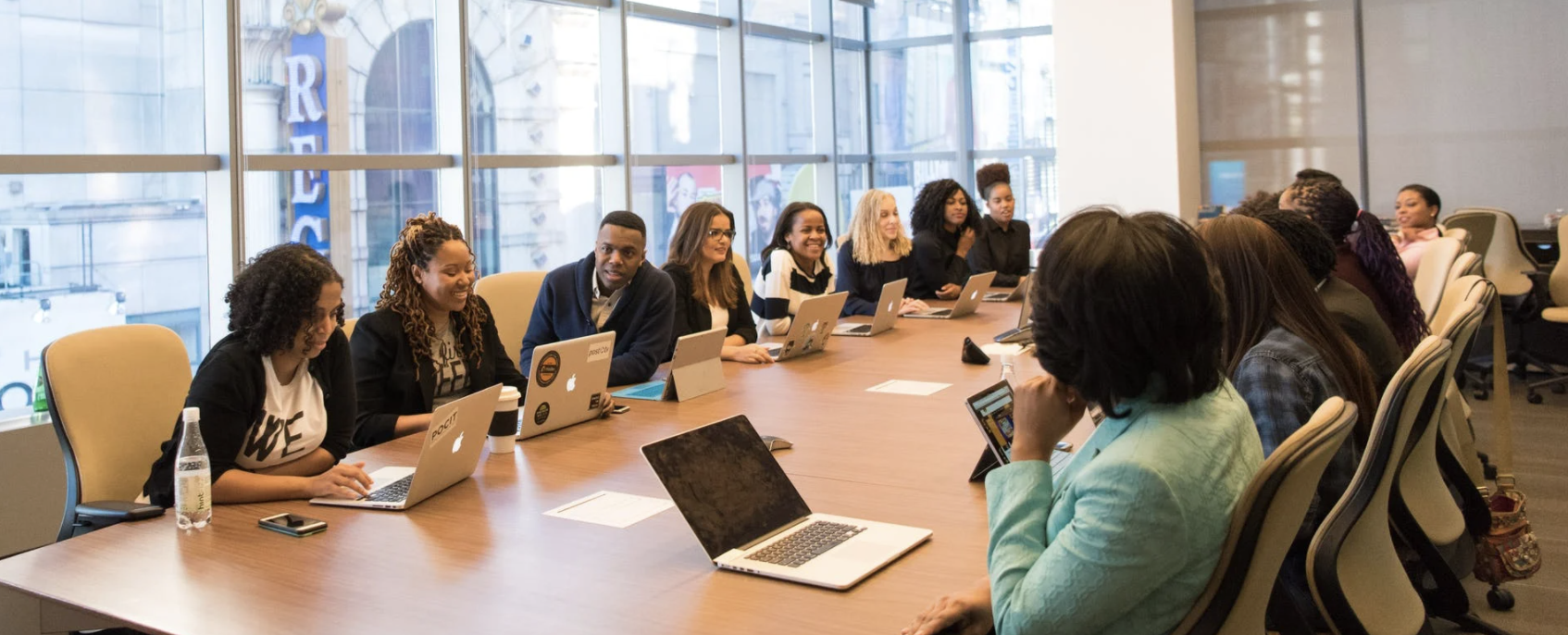Last week we excitedly met as a leadership team to discuss the details of our upcoming Proactive Talent Company Retreat, scheduled to take place this November. Like many companies out there, we reached the subject of vaccinations. And suddenly, meeting progress came to a halt.
The coming together of employees has long been the staple of companies looking to define their vision, outline their strategy, and mobilize their workforce around a call to action - all while driving culture and breaking bread together. But 2019 changed all that and the pandemic has left us in a hotbed of political and ethical debates around something we may never take for granted again: the in-person meeting.

If you missed it, ABC News recently reported that CNN fired three employees for coming to work unvaccinated, following the launch of a company policy mandating vaccination for employees working in an office or field location. “Let me be clear,” wrote Zucker, chairman of news and sports for WarnerMedia, “we have a zero-tolerance policy on this.” But CNN is far from being the only company to mandate employee vaccination. In a statement from CNBC, “The U.S. government may not require that everyone get Covid-19 vaccines, but large employers across corporate America are stepping into the void. More than a dozen large U.S. corporations, including Walmart, Google, Tyson Foods, and United Airlines, have recently announced vaccine mandates for some or all of their workers.” The article was later updated to point out that Veterans Affairs had since mandated vaccinations, indicating that many other governmental departments are soon to follow, given the recent FDA approval.
While many might be pleased to see their employers mandate vaccination, many others have expressed their displeasure. And while some are simply exercising their right not to vaccinate, others are choosing to fight for this right in a court of law, as was seen recently at a Houston hospital system where 153 employees refusing vaccination were fired or resigned during a two-week suspension period. 117 of those employees went on to file a lawsuit, which was later dismissed by the judge. The case is believed to be the first of its kind in the U.S., but it seems unlikely to be the last.
So where does that leave us? It’s clear this isn’t going away any time soon, and whether you choose to mandate or not, a decision in either direction will upset a section of your workforce. On a topic where there is seemingly no place for inaction, we are left in somewhat of a quandary. Or are we?

As HR professionals, we deal with these scenarios every day. Our job isn’t to pick a side, it’s to bring all sides together. The pandemic has affected every person in your organization on some level, so why make these decisions behind closed doors? It is, after all, about them. After our own debate, our CEO, Will Staney, sent a message to all employees telling them what we were planning and asked them for their opinion. If comfortable, they could choose to take part via a Slack survey and have an open conversation on the topic. If not, they could confidentially share their view with him directly by email. The result is that we can make decisions based on the opinions of all staff, without anyone feeling excluded. I will say, for context, that we are a mostly remote, desk-based company, and have nowhere near the complexity of a hospital system to consider - but there are still elements of our jobs that involve travel, internal in-person meetings, as well as external meetings with clients and suppliers.
The result will undoubtedly be that you can’t please all of the people all of the time, but really, what’s the problem with that? If our work on HR strategies such as employer brand, retention, DE&I, etc. have taught us anything, it’s this: involve staff in the process. Ask questions. Use data. Provide feedback. Define a plan, call it a first draft, communicate and execute it. Then ask for feedback, refine, and, if needed, relaunch. Then look at it again in 6 months, because your company, and the world we share, will once again be a very different place.

Here’s my advice: don’t look for a magic bullet – there isn’t one. The decision to vaccinate and/or mandate vaccination isn’t one size fits all, and that’s ok. Nothing is in HR, and it never has been. Don’t see this as a problem to solve; see it as an opportunity to demonstrate to your workforce that you care. That their opinion counts. Then use data to show why you made the decisions you did. Promise to re-examine the situation after a given period and keep that promise. Then promise to do it again – keeping promises builds trust. Above all, when you have gathered their input, segment the workforce like you would with any other personas. Show the reasons for, and their involvement in, the decisions made. Over-communicate. Empathize – it’ll help your employer brand, and the world needs more of this anyway. And whatever you do, make it about the people, not the policy.


